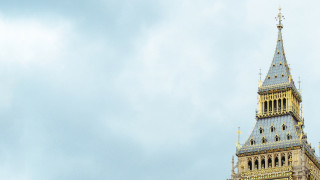You are here: Parliamentary briefings by Coram Family and Childcare
Coram Family and Childcare briefs MPs and peers on legislation and policy issues affecting families. These briefings are also helpful for anyone who wants a summary of the evidence, research findings and subsequent recommendations on key areas of family and children policy.
For any queries, please contact the Policy and Research team at policy@familyandchildcaretrust.org.
2015 - 2016 session
Assessment of Government Policies (Impact on Families) Bill:
Childcare Bill House of Lords Consideration of Ammendments Briefing:
Childcare Bill House of Commons Report Stage Briefing:
Childcare Bill House of Commons Second Reading briefings:
- Quality in free early education and childcare (Briefing from NCB and the Family and Childcare Trust)
- Childcare for children with SEND (Special Education Consortium briefing, supported by the Family and Childcare Trust)
Childcare Bill House of Lords Committee Stage probing amendment briefings:
- Children with SEND (Special Educational Consortium briefing, supported by the Family and Childcare Trust)
- Parents in sporadic employment
- Securing high quality childcare (NCB briefing, supported by the Family and Childcare Trust)
Childcare Bill House of Lords Second Reading briefing
Queen's Speech Childcare Bill briefing
Children and Social Care Bill
2014 - 2015 session
2013 - 2014 sessions
- Westminster Hall debate on childcare in london
- 'The costs of full-time childcare
- House of Lord debate on increasing access to affordable childcare
Children and Families Bill part 4
Glossary of parliamentary terms
General elections
A general election is when people from across the United Kingdom choose who their Member of Parliament (MP) is. In each local area – constituency – there will be several people who want to become an MP after the general election. They are called candidates.
When a general election takes place, the people who live in a constituency vote for the candidate that they would like to be their MP. The candidate that gets the most votes becomes the MP for that constituency.
Parliament
The Houses of Parliament are made up of the House of Commons and the House of Lords. People in the House of Commons are called MPs and people in the House of Lords are called Peers.
Parliament is where MPs and Peers talk about making new laws or changing old ones. Laws are the rules which tell us what we can do. For example, it is law that all children have to receive an education and that everyone has to drive on the left side of the road.
Anyone can go and visit parliament and watch MPs and Peers talk about laws.
MPs
There are 650 MPs who each represent a different part of the United Kingdom. The part of the United Kingdom that an MP represents is called their constituency. Examples of constituencies are North East Somerset and Romford.
Peers
There are 786 peers and they are selected to sit in the House of Lords, not elected like MPs. Many are selected because they know lots about a particular topic, for example children’s rights or healthcare.
Political parties
Most MPs and some peers are members of political parties. Political parties are groups of people who have different ideas about laws and how much money to spend on different things such as helping refugees or the police. Examples of political parties are the Labour Party, the Conservative Party and the Liberal Democrat Party. In Parliament at the moment we have 11 parties.
The Government
The party with the most MPs forms the Government. The Government decides how much money to spend on different things such as hospitals, roads and schools, and if Parliament needs to make new laws or change old ones. At the moment, the Conservative Party and the Liberal Democrat Party are in Government together, in a coalition. This is unusual quite unusual for Britain where one party is usually in Government by itself.
Prime Minister
The leader from the party with the most MPs becomes the Prime Minister. The Prime Minister is in charge of Government. Our Prime Minister is David Cameron.
Ministers and Departments
Other MPs from the party with the most MPs become ministers in the Government. Each minister is in charge of different things like schools and hospital. The work that Government does is divided into different groups called Departments.
All departments have several ministers. For example Sarah Teather is the minister for children and families and Nick Gibb is the minister for schools in the Department for Education.
Backbenchers
MPs who are not the Prime Minister or a Government minister are called backbenchers. They are important because they have a vote when laws are being made. MPs who are backbenchers also help to make sure that the Government is doing a good job by asking them questions in Parliament.
APPGs
Many MPs and Peers are members of all party parliamentary groups (APPGs). These are groups of parliamentarians that come together and meet to talk about particular question – such as runaways or refugees.
Committees
Much of the work of the House of Commons and the House of Lords happens in committees. These usually have around 10 to 50 members. These committees talk about different things. For example they can check if a department is doing its job well or what kind of training and education teachers need.
Sign up to our newsletter
Get the latest news, research and resources from Coram Family and Childcare.

